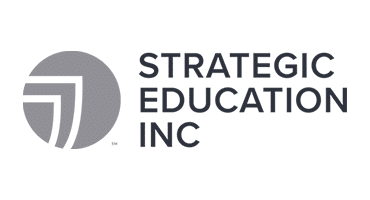Driven by the convergence of generational values and a growing regulatory landscape, family offices … [+]
Francois Botha using Dreamstudio
The world of sustainable investing is transforming, driven by the convergence of generational values and a growing regulatory landscape. With their capital, family offices play a significant role in shaping the future of wealth management and have an opportunity to lead in sustainable investments. As the next generation takes the helm, they bring with them a greater focus on environmental, social, and governance (ESG) issues. And if family offices want to meet these next new wealth owners where they’re at, they must navigate these shifting priorities while also adapting to the increasing regulatory requirements shaping the investment landscape.
The Next Generation’s Impact on Sustainable Investing
The next generation is increasingly interested in aligning their investments with their values and long-term societal goals and with a major wealth transfer on the horizon, they’re naturally well-positioned to drive meaningful change. The desire to make a tangible, positive impact on the world while simultaneously generating financial returns is a match made in heaven, not only for switched-on investors but society as a whole. This shift in priorities presents an opportunity for family offices to reassess their investment strategies but also means they need to be aware of and incorporate ESG factors into these strategies more prominently.
An overview of the latest ESG legislation
Legislative changes, such as the Inflation Reduction Act (IRA) of 2022 and the Sustainable Finance Disclosure Regulation (SFDR), are shaping family offices’ sustainable investing strategies, particularly in light of the values held by next-gens. These wealth owners are increasingly focused on environmental, social, and governance (ESG) factors, prioritizing long-term sustainability over short-term financial gains, and these regulations will bolster these decisions.
The IRA of 2022, signed by President Biden, supports ESG principles by allocating $369 billion for climate change and green energy investment over the next 10 years. The legislation aims to reduce the US reliance on fossil fuels, targeting a 40% reduction in carbon emissions by 2030. Key areas of focus include renewable energy demand, greenhouse gas emissions reduction, American energy security and manufacturing, decarbonization of the US economy, investment in communities and environmental justice, and support for farmers and rural communities.
The IRA extends and enhances various energy-related tax credits and incentives, including those for renewable electricity, energy storage, carbon capture, clean hydrogen, sustainable aviation, biofuels, electric vehicles, charging infrastructure, advanced domestic manufacturing, and greenhouse gas reductions. It also supports social policies by tying credit amounts to prevailing wage and apprenticeship requirements and incentivizing investment in low-income and energy communities. The act aims to create jobs in the U.S. by providing tax credits for domestic manufacturing, allowing tax-exempt entities to benefit from clean energy investments, and offering incentives for using domestic content. The legislation modifies existing energy-related tax credits and introduces new credits and structures to facilitate long-term sustainable investment.
Investment implications of the IRA include increased demand for commodities like silicon and lithium, a 1% tax on stock buybacks, a minimum 15% tax for corporations with at least $1 billion in net income, increased demand for electric vehicles (EVs) and energy-efficient appliances, support for the oil and gas sector, and extended production and energy investment tax credits for clean energy projects. Overall, the legislation aims to put the US on a path to reduce emissions and invest in a sustainable future.
The SFDR’s Impact on Family Offices
In addition to the IRA, the SFDR is another piece of legislation that will impact the decisions family offices take when approaching sustainable investing.
The SFDR, a European regulation that came into effect in March 2021, has significant implications for family offices, both within and outside the European Union. As a regulation focused on enhancing transparency and accountability in the financial sector, the SFDR requires financial market participants, including family offices, to disclose sustainability-related information to investors. This regulation aims to prevent greenwashing and facilitate informed decision-making by investors, who increasingly prioritize ESG factors in their investment choices.
According to a survey by Campden Wealth and UBS, 37% of family offices in Europe already consider ESG factors in their investment decisions. This number is expected to grow as the next generation of wealth owners places greater emphasis on sustainability. The SFDR will further catalyze this shift, as family offices will need to comply with its disclosure requirements and demonstrate the sustainability of their investments. This regulatory change encourages family offices to reevaluate their investment strategies and better integrate ESG factors to remain competitive and attractive to the next generation of investors.
Best Practices for Family Offices in Sustainable Investing
Family offices can benefit from adopting a proactive approach to sustainable investing, embracing the evolving landscape, and seizing new opportunities. Here are some smart approaches:
- Nothing works in isolation: Develop a tailored sustainable investment strategy in collaboration with experts and advisors.
- Stay on the straight and narrow: Ensure compliance with evolving regulations and legislative changes, such as the SFDR, EU Taxonomy Regulation, and U.S. SEC’s focus on ESG disclosures.
- Keep an eye out: Continuously monitor and evaluate the impact and performance of sustainable investments.
By adapting to the evolving landscape of sustainable investing and incorporating the values of the next generation, family offices can seize the opportunity to drive long-term value creation and make a positive societal impact.
Credit: Source link











